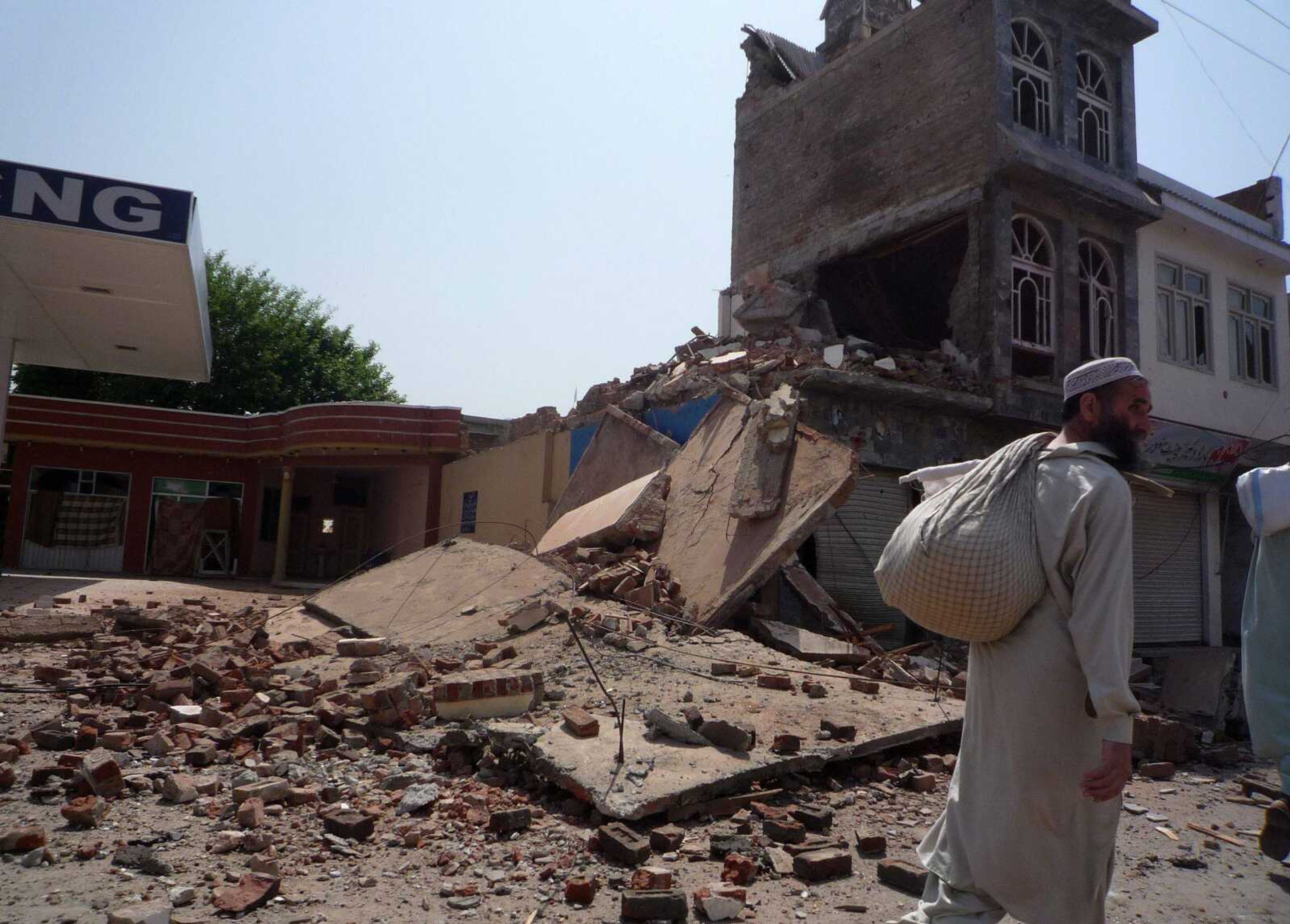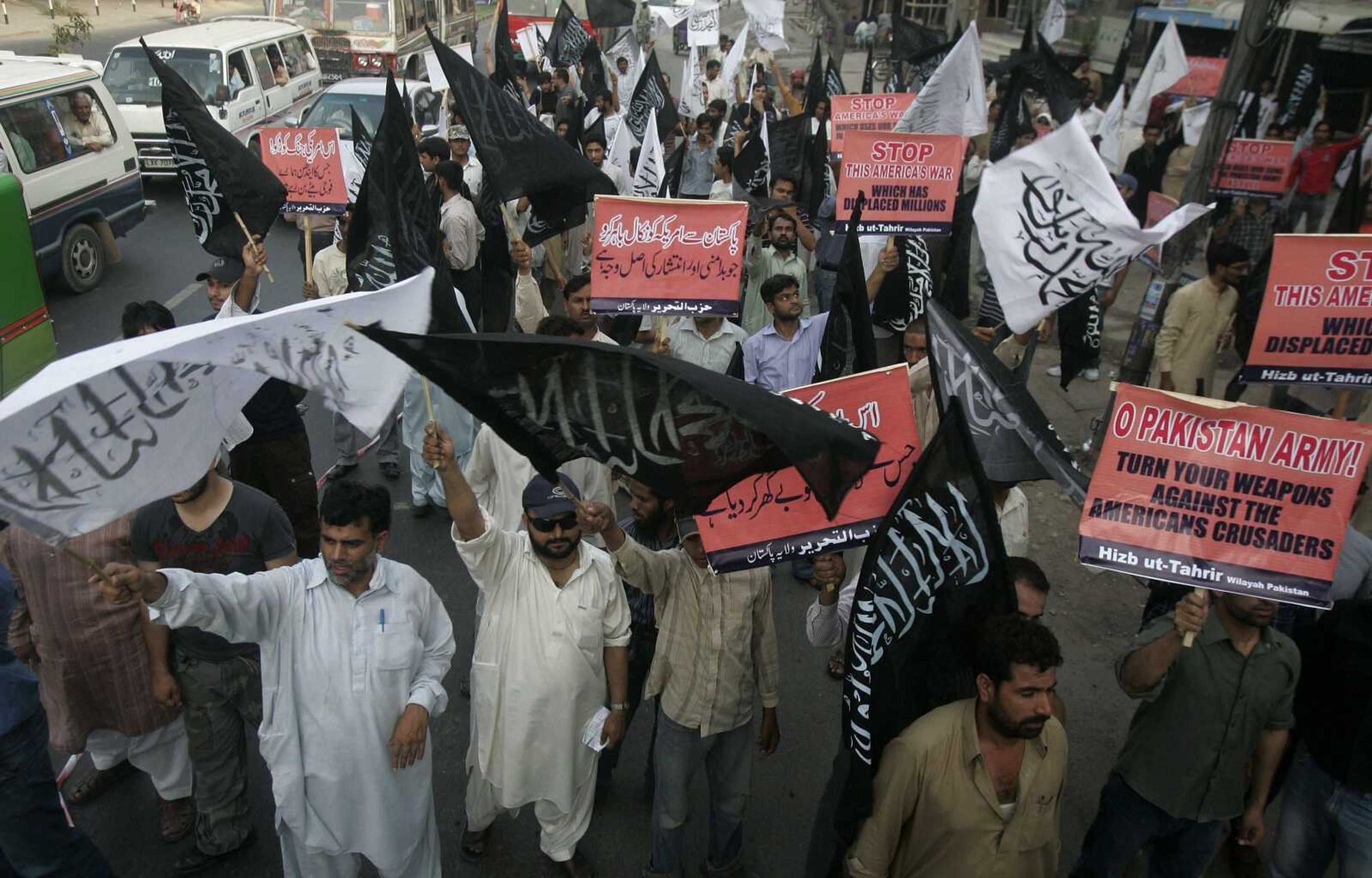Swat offensive viewed as a test for Pakistan
ISLAMABAD -- Pakistan says it is close to beating the Taliban in the Swat Valley, but battlefield success alone does not equal victory: Militant commanders are still at large, local governments and police forces have been decimated and millions of residents are displaced from their homes...
ISLAMABAD -- Pakistan says it is close to beating the Taliban in the Swat Valley, but battlefield success alone does not equal victory: Militant commanders are still at large, local governments and police forces have been decimated and millions of residents are displaced from their homes.
Even if Pakistan succeeds in eliminating insurgents in one of its most intense operations yet, the northwestern valley is just one of several militant strongholds in the U.S.-allied country -- and not even the most important.
Already, fighting is flaring in the semiautonomous tribal areas bordering Afghanistan, where al-Qaida and the Taliban are more entrenched than they were in Swat.
The U.S. sees Swat as a test of nuclear-armed Pakistan's ability and willingness to tackle insurgents in the northwest blamed for attacks on American and NATO forces in Afghanistan.
Over the weekend, the Pakistani army said it had reclaimed Mingora, Swat's main town. The defense secretary said Sunday the whole valley could be back in control within two or three days, though other officials have given longer timeframes.

In announcing Mingora's capture, army spokesman Maj. Gen. Athar Abbas acknowledged the escape of an unknown number of militants. So far, no top commanders, including Swat Taliban chief Maulana Fazlullah, are known to have been killed or captured. Some parts of the valley remain under militant control.
After a violent, two-year Taliban campaign, the valley's local administrative authorities have been severely damaged, with top lawmakers, government officials and business leaders fleeing months ago.
Militants in Swat frequently targeted police, while desertions further thinned their ranks. In December, officials said about 300 policemen had fled the force, figures sure to have risen in the months since.
Re-establishing local government -- most importantly bringing back police patrols -- is critical to holding Swat once the army offensive ends. To do that well could take months, possibly years.
For now, it appears the army and paramilitary forces will have to act as the police, as they were already trying to do in many parts of Swat before the offensive.
The military says it has tried to minimize civilian casualties and property damage in Swat's towns, knowing public support could wane otherwise.
Still, video footage and reporters' accounts from various parts of the valley and nearby districts indicate significant destruction. For many of the 3 million refugees, a return could mean finding a crushed home or damaged businesses, fueling popular anger and hampering efforts to jump-start the local economy in a region that was once a jewel of Pakistani tourism.
Pakistan has announced $100 million in federal aid to help the Swat refugees while the U.N. is pleading with donors to come up with $543 million to ease what is one of the largest internal displacements in a country in many years. Pakistanis also have launched drives to help the refugees, most of whom are staying with relatives or friends but some 200,000 of whom are in camps.
There also are plans to beef up the police force in Swat, in part by using retired military officers.
But timeframes are unclear, and the country's track record on post-conflict work is not inspiring.
Before the latest offensive in Swat, Pakistan waged a six-month fight against insurgents in Bajur, a tribal region considered a sanctuary for al-Qaida and the Taliban on the Afghan border.
Of up to 500,000 people displaced from Bajur, some 230,000 have returned since the army declared victory there in February, only to find as many as 6,000 homes and shops destroyed or damaged, said a top administrative official in the region, Shafir Ullah Jan.
An AP reporter recently saw tribal police and troops patrolling several Bajur towns, but at least one area, Loi Sam, is still having security problems three months after the militants were declared vanquished.
Jan said the government was fixing some buildings and roads in Bajur's main town of Khar, and that foreign aid was part of that, but he had yet to see a comprehensive plan for reconstruction for an area that is far more needy than Swat.
"I ask the people of Swat to see what is happening to us," said Zamin Khan, 37, a Khar resident. "If we were not helped by the government, the people of Swat would also not be helped because after the operation in Swat, the government may launch a new operation in some other area, and Swat would then be neglected the way we are being ignored."
With every new instance of violence in the tribal belt -- where al-Qaida leader Osama bin Laden is rumored to be hiding -- the odds of another offensive appear greater.
The latest clashes came over the weekend, when insurgents attacked an army convoy in South Waziristan late Saturday. That prompted several battles that killed dozens of insurgents and seven soldiers, intelligence officials and the military said.
South Waziristan is the main base for Pakistani Taliban chief Baitullah Mehsud.
Last week, militants attacked the headquarters of Pakistan's top intelligence agency and a police center in the eastern city of Lahore, killing 30 people. Mehsud loyalists said the attack was revenge for the Swat offensive.
Officials said three bombings that killed 14 people a day later in the northwestern cities of Peshawar and Dera Ismail Khan also involved Taliban retaliation.
A Mehsud deputy warned Pakistanis to vacate several cities because more bombings were on the way.
The threat was a reminder: Swat may not be Pakistan's first attempt to dismantle the insurgency, but it can't be its last, either.
---
Nahal Toosi is an Associated Press correspondent based in Islamabad. AP writer Habib Khan contributed to this report from Bajur.
Connect with the Southeast Missourian Newsroom:
For corrections to this story or other insights for the editor, click here. To submit a letter to the editor, click here. To learn about the Southeast Missourian’s AI Policy, click here.









